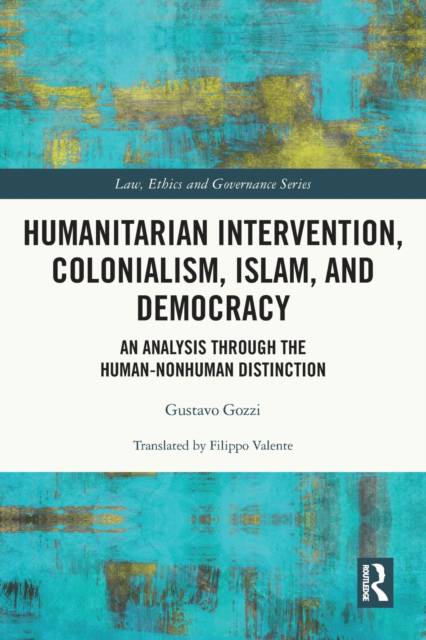
- Retrait gratuit dans votre magasin Club
- 7.000.000 titres dans notre catalogue
- Payer en toute sécurité
- Toujours un magasin près de chez vous
- Retrait gratuit dans votre magasin Club
- 7.000.0000 titres dans notre catalogue
- Payer en toute sécurité
- Toujours un magasin près de chez vous
Humanitarian Intervention, Colonialism, Islam and Democracy
An Analysis Through the Human-Nonhuman Distinction
Gustavo GozziDescription
This book offers a critical analysis of the European colonial heritage in the Arab countries and highlights the way this legacy is still with us today, informing the current state of relations between Europe and the formerly colonized states.
The work analyses the fraught relationship between the Western powers and the Arab countries that have been subject to their colonial rule. It does so by looking at this relationship from two vantage points. On the one hand is that of humanitarian intervention--a paradigm under which colonial rule coexisted alongside "humanitarian" policies pursued on the dual assumption that the colonized were "barbarous" peoples who wanted to be civilized and that the West could lay a claim of superiority over an inferior humanity. On the other hand is the Arab view, from which the humanitarian paradigm does not hold up, and which accordingly offers its own insights into the processes through which the Arab countries have sought to wrest themselves from colonial rule. In unpacking this analysis the book traces a history of international and colonial law, to this end also using the tools offered by the history of political thought.
The book will be of interest to students, academics, and researchers working in legal history, international law, international relations, the history of political thought, and colonial studies.
Spécifications
Parties prenantes
- Auteur(s) :
- Editeur:
Contenu
- Nombre de pages :
- 250
- Langue:
- Anglais
- Collection :
Caractéristiques
- EAN:
- 9780367755249
- Date de parution :
- 09-01-23
- Format:
- Livre broché
- Format numérique:
- Trade paperback (VS)
- Dimensions :
- 156 mm x 234 mm
- Poids :
- 371 g

Les avis
Nous publions uniquement les avis qui respectent les conditions requises. Consultez nos conditions pour les avis.






